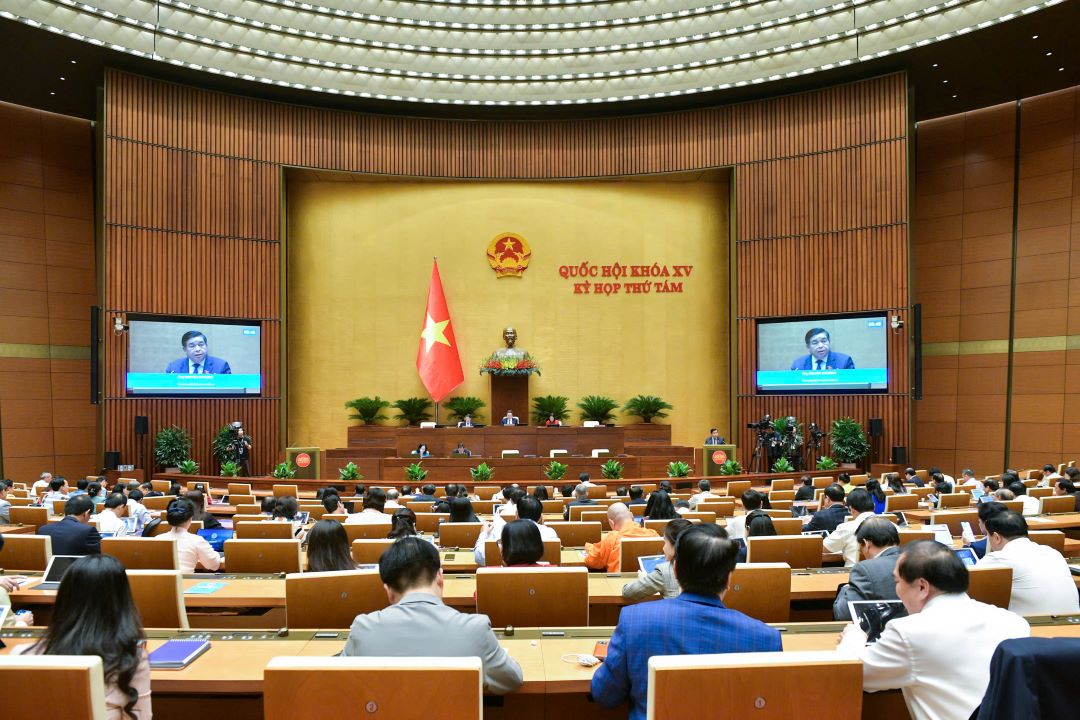HCMC – A new draft law on public investment looks to streamline administrative procedures and eliminate the “ask-and-give” approach, reported the local media.
Minister of Planning and Investment Nguyen Chi Dung presented the draft of the amended Public Investment Law at the ongoing eighth sitting of the National Assembly (NA) today, October 29, outlining measures to simplify processes, clarify responsibilities, and delegate authority to local governments.
Under the proposed amendments, local authorities would gain greater power to make decisions and implement projects, while the central Government and the NA would focus on policy development and oversight.
The draft law, which includes seven chapters and 109 articles, introduces five main policy groups. One key provision allows for separate projects on compensation, resettlement, and site clearance across all project categories, including those classified in groups B and C.
Another proposal would delegate authority to the prime minister, transferring the power to reallocate central budget investment funds from the NA’s Standing Committee. Similarly, authority over unallocated central budget reserves in the medium-term investment plan would shift from the NA to its Standing Committee.
The draft law also suggests doubling the minimum investment thresholds for major national projects and for projects classified in groups A, B and C.
For group A projects, those valued below VND10 trillion would fall under the jurisdiction of ministers, while projects valued between VND10 trillion and VND30 trillion would require the prime minister’s approval.
The amendment further introduces measures to accelerate the disbursement of foreign loans, including official development assistance (ODA). It allows capital disbursement in line with public debt management regulations, regardless of existing lending ratios.
Minister Dung noted that the proposal incorporates feedback from the NA’s Standing Committee and other central agencies, emphasizing a shift toward post-approval project oversight and development-focused governance.
Under the current “ask-and-give” system, project proponents must actively seek approval and funding from higher authorities, leading to delays, especially in the real estate sector, as officials often pass on tough decisions to ministries and central agencies for guidance rather than addressing them directly. This has caused many investment projects to stall due to inaction among lower-ranking officials.
The Government has recently introduced strict measures to hold officials accountable for evading responsibility or delaying critical decisions. In July, the Ministry of Home Affairs proposed amending Decree 138/2020/ND-CP to permit the temporary suspension of civil servants who show inadequate responsibility or fail to fulfill their duties.
The proposed changes aim to streamline administrative processes and accelerate public investment disbursement, which has been sluggish. By the end of September, Vietnam had disbursed over VND320.5 trillion for public projects, meeting only 47.29% of the Government’s full-year target. The Government has allocated around VND657 trillion for public investment this year, with more than two-thirds designated for infrastructure projects.
Vietnam missed its public investment target in 2023. The amendment is seen as a critical step to cut red tape and improve the nation’s disbursement efficiency.









